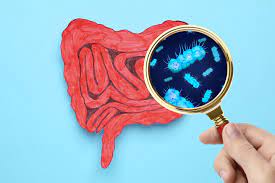
Breaking News
 Ron's Take: The US and Iran War
Ron's Take: The US and Iran War
 Kurdish Boots on the Ground with US/Israeli Air and Drones
Kurdish Boots on the Ground with US/Israeli Air and Drones
 Clinton Epstein Deposition Highlights: Ex-President & Secretary Of State Grilled On Ties...
Clinton Epstein Deposition Highlights: Ex-President & Secretary Of State Grilled On Ties...
Top Tech News
 US particle accelerators turn nuclear waste into electricity, cut radioactive life by 99.7%
US particle accelerators turn nuclear waste into electricity, cut radioactive life by 99.7%
 Blast Them: A Rutgers Scientist Uses Lasers to Kill Weeds
Blast Them: A Rutgers Scientist Uses Lasers to Kill Weeds
 H100 GPUs that cost $40,000 new are now selling for around $6,000 on eBay, an 85% drop.
H100 GPUs that cost $40,000 new are now selling for around $6,000 on eBay, an 85% drop.
 We finally know exactly why spider silk is stronger than steel.
We finally know exactly why spider silk is stronger than steel.
 She ran out of options at 12. Then her own cells came back to save her.
She ran out of options at 12. Then her own cells came back to save her.
 A cardiovascular revolution is silently unfolding in cardiac intervention labs.
A cardiovascular revolution is silently unfolding in cardiac intervention labs.
 DARPA chooses two to develop insect-size robots for complex jobs like disaster relief...
DARPA chooses two to develop insect-size robots for complex jobs like disaster relief...
 Multimaterial 3D printer builds fully functional electric motor from scratch in hours
Multimaterial 3D printer builds fully functional electric motor from scratch in hours
 WindRunner: The largest cargo aircraft ever to be built, capable of carrying six Chinooks
WindRunner: The largest cargo aircraft ever to be built, capable of carrying six Chinooks
Human trial finds common food additive alters gut microbiome

Many food additives approved for human consumption across the 20th century were generally understood to be safe based on research showing they mostly pass through our intestines unabsorbed and are eliminated in feces. However, our growing understanding into the relationship between the vast population of bacteria in the gut and our general health has led many researchers to reevaluate the effects of these chemicals previously thought to be harmless.
Titanium dioxide, for example, was used for decades as a white food coloring agent. Long thought to be essentially non-toxic it was only recently that scientists discovered the chemical's profound effect on the gut microbiome, particularly when delivered in the form of nanoparticles. Many countries in the world have now banned the additive from foods.

 Tulsi Gabbard Should Resign
Tulsi Gabbard Should Resign
 RNA Crop Spray: Should We Be Worried?
RNA Crop Spray: Should We Be Worried?

